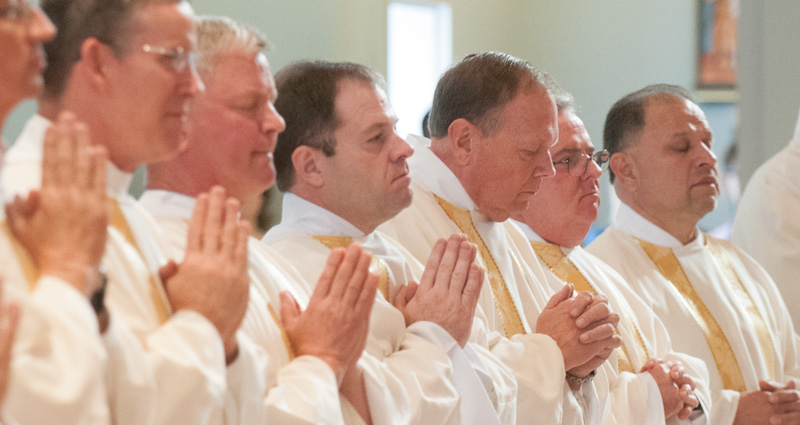
Editor’s note: Daniel Lloyd, a professor of religion, contributed the following column on the diaconate.
Some misunderstandings about deacons arise from the fact that there are transitional deacons and permanent deacons. A candidate for the priesthood, a seminarian, is ordained to the diaconate for about a year prior to receiving priestly ordination. It is called the transitional diaconate because a seminarian transitions from the diaconate to the priesthood.
About 50 years ago, the Church decided to reinstitute the diaconate as a permanent level of the hierarchy. Those ordained to the permanent diaconate do not receive other ordinations, unlike the transitional deacons who go on to the priesthood.
Since many Catholics only see their deacons reading the Gospel, preaching, baptizing, or celebrating weddings, many tend to think that those specific activities or jobs are what make a deacon.
Furthermore, when people think about what a deacon “can do,” they quickly realize that he can do some of the things priests do. On the other hand, a deacon can’t consecrate the bread and wine of the Eucharist. A deacon also cannot hear confessions. Between the similarities and differences, some people falsely conclude that a deacon is a mini-priest, or junior priest.
While there is no doubt that liturgical activities are central to the vocation of a deacon, it is the service, or charity, aspect of the diaconate which is critical to understanding that priests and deacons are not ordained for the same purpose.
Canon Law states: “Those who are constituted in the order of the episcopate or the presbyterate receive the mission and capacity to act in the person of Christ the Head, whereas deacons are empowered to serve the people of God in the ministries of the Liturgy, the word and charity.”
Deacons are not ordained simply to do some of the things priests do; they are ordained to bring a different ministry of Christ to the Church and the world.
As much as anything else, a deacon’s vocation is about sacramentally living out a life of service. Most deacons have part-time or full-time work in the secular world. Their role as ordained deacons happens just as much at the workplace as it does in their homes, among their friends, shopping, or ministering in liturgical celebrations.
In fact, the role of service given by deacons to the priests during the eucharistic celebration is a good representation of their role to all people at all times. Deacons should serve all in the Church and the world in such a way that everyone’s God-given gifts are nurtured and encouraged.
By serving to support and encourage the particular graces people are given, deacons act as a model of self-sacrifice and charity. While all Christians are called to be self-sacrificial and charitable, deacons are ordained, and thus given sacramental grace, to live out this service as permanent, clerical representatives of the Church.
Daniel Lloyd is assistant professor of religion in the Department of Philosophy, Theology, and Religion at St. Leo University in North Charleston. He holds a BA in English and Philosophy from the University of Scranton, an MTS from Weston Jesuit School of Theology, and a Ph.D. from Marquette University. The Diocese of Charleston works with St. Leo on diaconate formation.
Miscellany file photo: Steven Brown, Harvey Becker, Michael Woodall, Joseph Stocker, Michael Regan and Jose Mayen pray after their ordination to the permanent diaconate at St. Mary Magdalene Church in Simpsonville in this photo from Feb. 6.


